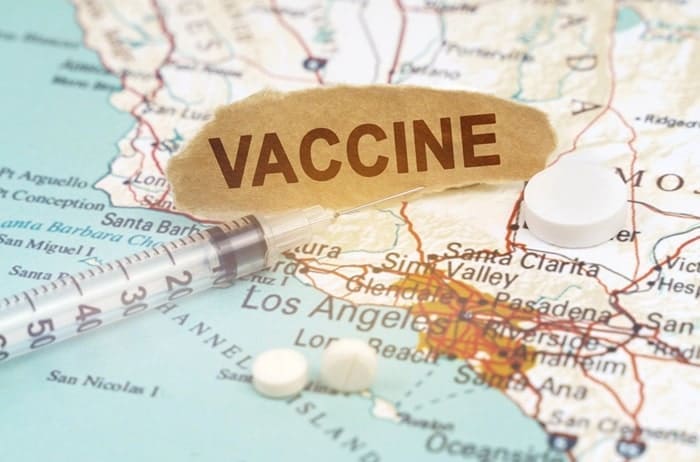When planning international travel, paying attention to your health is as crucial as booking your flight or packing your bags. Essential vaccines are a key part of travel preparation and can help ensure that your trip is as safe and healthy as possible. Depending on your destination, certain vaccines may be required or recommended to protect against infections that are more common in other parts of the world.
Before jetting off, it’s important to familiarize yourself with the vaccines for travel you might need. These could range from routine updates to specific vaccinations like Twinrix for Hepatitis A and B, or even Yellow Fever. A travel health professional can help tailor your vaccinations to your itinerary and health history, ensuring you’re protected against potential health risks.
Routine and Recommended Vaccinations for International Travel
When planning international travel, ensuring that you are up to date with routine vaccinations and obtaining travel-specific shots is crucial for your health.
Routine Vaccines and Travel-Specific Shots
Routine vaccines, such as those against measles, mumps, rubella (MMR), tetanus, diphtheria, and pertussis (TDAP), are essential for both adults and children regardless of travel. Your healthcare provider can help determine if you’re current on these vaccines. Additionally, travel vaccines cater to the risks associated with specific destinations. Vaccines like those for hepatitis A and B or Japanese encephalitis might be recommended based on your travel itinerary.
- MMR (Measles, Mumps, Rubella): Ensure you have received this vaccine, as measles remain common in many parts of the world.
- TDAP (Tetanus, Diphtheria, Pertussis): Especially important for travelers to ensure protection against tetanus, often found in the environment.
When visiting regions with disease risks not commonly found in your home country, such as areas with yellow fever, carrying an International Certificate of Vaccination or prophylaxis may be a requirement for entry.
Country-Specific Vaccine Requirements and Recommendations
Before traveling, check the destination pages on credible sites like the CDC to understand country-specific vaccine requirements. Some countries may require proof of vaccination against diseases like yellow fever or meningococcal disease before entry.
- Yellow Fever: Required by some countries; check if your destination is on the list.
- Meningococcal: Recommended or required for certain destinations, especially if you plan to visit sub-Saharan Africa or during the Hajj.
Visiting a travel clinic or your healthcare provider well in advance of your trip is key, as some vaccines need to be administered weeks ahead for full efficacy. Your healthcare provider might also recommend vaccines like Twinrix, a combined hepatitis A and B vaccine, for comprehensive protection based on your travel plans.
Travel Health Resources and Precautions
Before embarking on international travel, it’s crucial that you familiarize yourself with necessary vaccines and health precautions. Resources like travel clinics and advice from a travel medicine specialist can significantly reduce risks.
Disease Risks and Vaccine-Preventable Diseases
Traveling exposes you to a plethora of diseases, which may not be prevalent in your home country but pose significant risks abroad, such as malaria, typhoid, and cholera. Protecting yourself begins with understanding these risks and ensuring you’re up to date with your vaccinations for travel, including region-specific vaccines like those for yellow fever. Mosquito-borne diseases are preventable; thus, it’s wise to practice mosquito bite avoidance in rural areas and places with known outbreaks.
Pre-Travel Consultation and Vaccine Documentation
In the weeks prior to your departure, schedule a consultation with a travel medicine specialist or doctor. They can advise on necessary vaccinations and provide documentation proving your immunization—essential in some countries. Speak to your health department or pharmacist well in advance, as some vaccines require multiple doses over time. Your insurance may cover these consultations and necessary medications, so check your plan in advance.
Maintaining Health Abroad
While traveling, maintaining your health is as important as the preparations. Adhere to safe food and water practices to avoid contaminated food, and carry medication advised by your health professional. Be aware of travel notices for your destination and locate a local yellow fever vaccination clinic if your activities place you at risk. Your diligence in these practices can be the barrier between you and potential health threats.
Conclusion
Key Takeaways
- Essential vaccines are a critical part of travel health preparation.
- Vaccination needs vary based on destination and individual health history.
- Consultation with a health professional ensures tailored and effective protection.
Before embarking on international travel, ensuring your vaccinations are up-to-date is a crucial step in protecting your health. The CDC’s guide to travel vaccines emphasizes the need for standard immunizations like Hepatitis A and B, typhoid, and routine vaccines such as tetanus. Remember to consult medical advice early as some vaccinations require multiple doses over time. Stay informed, stay vaccinated, and travel safely.



Comments are closed.